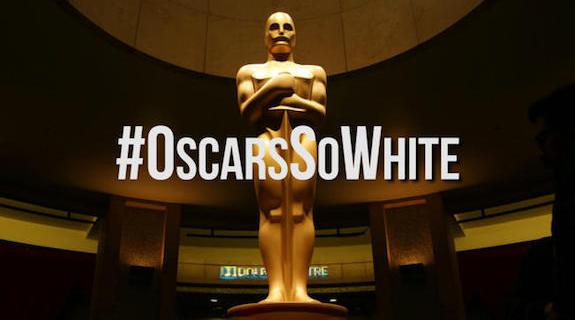The Academy Awards were created to protect, honor and award Hollywood’s best and brightest. But only just a few of the best and brightest. Why is that?
Why is it that there is no nonwhite talent nominated for awards at this year’s Oscars? Some, like George Clooney, say it’s due to so few Black films being made, leaving less options. What about the ones that were made? If we look closer, this year’s Black films unfortunately lack what we’re most obsessed with: The Wild Card.
When I say the wild card, I mean the unconventional, unexpected, intriguing. There were talks of Will Smith in Concussion, or Michael B. Jordan in Creed, or Idris Elba in Beasts of No Nation. All of these performances, while great, seemed to lack what we reward and buy into as a culture, the wild card: the unexpected performance that we can unanimously stand behind amongst the competition.
What do Denzel being a crooked cop, or Jamie Foxx playing a serious role, or Halle Berry engaging in an interracial affair have in common? Not only did they win Best Actor and Actress for their performances, but they won it with wild-card roles. And their roles weren’t explicitly based on the Black experience, like, say, a Spike Lee film. Their performance, and the script they were given, captured the human spirit. They could’ve been any color, their being Black was just a happenstance.
The Academy of Motion Picture Arts and Sciences, the awarding organization, notes the 1963 Best Actor award that went to Sidney Poitier was no different. According to Robert Osborne, an Oscars historian, it was Poitier’s character as an individual and outstanding performance that won him the award, not him being Black.
Speaking as a Black man, much of my existence revolves around my color. It’s natural, in my experience, to notice when you’re not included with the cool kids.
While it may be convenient to accuse the Academy of racism, it’s surely an easy way out. They aren’t as resistant to change as we’d like to think. Throughout its 87-year existence, the Academy has a progressive history of changing for the better, consistently being open to the exchange of new ideas. Whether it’s finally awarding foreign films, scrutinizing their own voting process or shutting down their broadcast due to Martin Luther King’s assassination. They have revisited their philosophies, and at the very least, sought endless ways to improve for the betterment of Hollywood.
In a recent interview with The Hollywood Reporter, Cheryl Boone Isaacs, the president of the AMPAS, calls this years lack of nonwhite nominations an “inflection point.” She acknowledges the Academy’s shortcomings, but points out its effort to recruit more voting members of color.
“You have to over-index now on every hiring opportunity you have,” she said.
In the same story, Penelope Ann Miller, a voting member in the Academy, shoves away critics who lump her and others into a category of racists. She insists “It was just an incredibly competitive year.”
The truth is this: We must become less obsessed with the wild card and accept that what resonates with audiences isn’t always universal. For starters, what is a good film? What separates your good taste from my good taste? Do I have bad taste for thinking Hype Williams’ Belly should have been awarded for its cinematography? Is it bad taste to want Wood Harris’ performance in Paid In Full to be acknowledged? The Academy must become more transparent about what the criteria is, and why some films never make the cut. Our ultimate obsession with intrigue, of course, is the culprit.
For us writers and content creators, this is a good time to think differently about the human experience and to reevaluate our conclusions. In some strange way, we are just like those wild cards. Interesting, courageous, human. As makers of content, we can create more intriguing characters, add layers of engaging complexities and further contextualize the human condition. This type of content always seems to resonate, across any color line.
Imagine that for an entire year, you show up to work early, deliver above expectation and bring in lots of money for your company. At the annual gathering, the leadership team skips over your name to celebrate one of your colleagues. It happens every year, the same group wins. You notice that the people getting
recognition all have something in common. Maybe they’re male, or white, or skinny, or handsomely tall. Would you feel something was up?
I imagine that’s how it feels to get snubbed.
I don’t suggest that the responsibility of inclusion lies solely with the Academy. Our biases show up in our every day lives, at hiring and even promotion time. But when we go to work every day, we have a choice. To leave the world the way we found it, or to stand for something.
Kareem Taylor (@KareemTaylor) is a voiceover actor and author of “Get Your Life!,” the little orange book that is inspiring millennials worldwide. He is an optimist and writes a popular blogs on marketing, sales and leadership at KareemTaylor.com. A graduate of PromaxBDA and Santa Monica College’s Promo Pathway, Kareem counts CNN, Taco Bell, Sony Pictures Television and AT&T as his clients.
[Image courtesy of the LA Times.]
Tags:













































__twocolumncontent.jpg)











